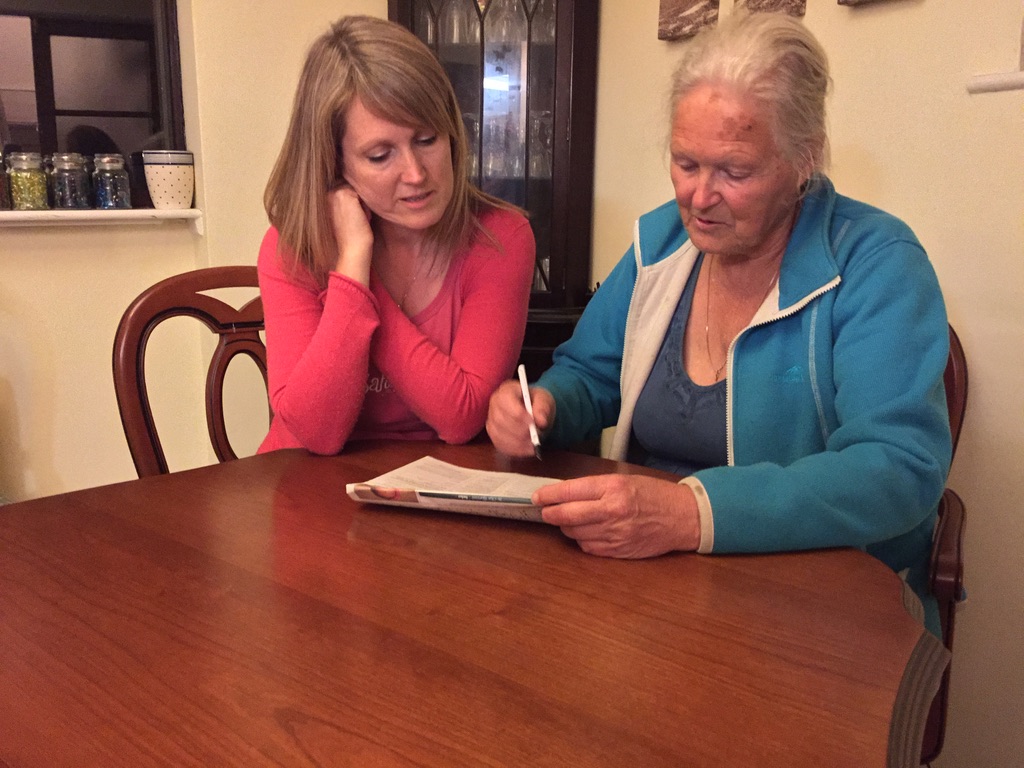Author: Professor Catherine Loveday, Social Sciences, University of Westminster
For each of us, there was a different point at which we knew. For my mum, it was an hour before she was due to dish up Christmas dinner in 2010. She opened the oven to put the roast potatoes in, only to discover that she was staring at a raw turkey and had neglected to turn the gas on. For my sister, the niggling doubts began when she realised that mum was muddling up or forgetting important details of conversations within minutes of putting the phone down. For me, the creeping suspicions that I had kept to myself for a year or more were finally confirmed when mum got completely lost while taking the dog for a walk across her local sand dunes, an area that she knew well.
For many years, I had been the go-to for friends and acquaintances who were worried about their parents or grandparents. My PhD explored the nature of normal age-related changes in memory and I spent over 3 years regularly visiting and assessing healthy active older people. As well as generating some interesting findings and setting me on course for an exciting career, this experience gave me a valuable and detailed understanding of what normal healthy ageing looks like. I became adept at recognising when something seemed different and this proved to be a game changer for my mum.
Early diagnosis
Educated at Cambridge, my mum had qualified as a doctor in the days when only one in ten were women. She was intelligent, fiercely determined, independent and competent at just about everything. I initially put her memory lapses down to the intense stress she experienced caring for my stepdad in his later years. And then after he died, I blamed the grief and change in lifestyle. Of course, these are both things that can impact significantly on memory but deep in my heart, I knew it was more than that. So, after the dog-walking trip, I gently persuaded her to let me test her memory. The neuropsychological signature of early Alzheimer’s was unmistakable, and my journey from researcher to researcher-daughter began.
Early diagnosis is incredibly important, but still a big clinical challenge. Because there are currently no blood tests or brain scans that will definitively indicate Alzheimer’s disease (although see here), my own field of neuropsychology is crucial. Neuropsychological assessments involve memory tests, problem-solving tasks, and the kinds of games that you might see on a brain-training app. By looking at the overall profile of scores, we can identify areas of cognitive function that are atypical, and this tells us a lot about which parts of the brain are working well or not so well. In my mum’s case, her problem solving skills were better than 98% of the population, but two critical memory scores were worse than 99.9% of the population.
When it comes to neurodegenerative diseases like Alzheimer’s, the neuropsychological approach offers the potential to pick up differences long before there are any obvious clinical symptoms. This is particularly important in highly educated older people who are very skilled at developing strategies which mask cognitive decline. Back in 1991, I remember remarking to my PhD supervisor that two of my participants were scoring well, but had very unusual cognitive profiles. Both of them eventually ended up with a dementia diagnosis (but not for another ten years).

Over thirty years later, early cognitive testing is still not routinely used in clinical settings and the research has tended to focus much more heavily on identifying biomarkers. How these biomarkers relate to clinical symptoms remains poorly understood, so I jumped at the chance to supervise postgraduate research on this exact question. Together with Tom Buchanan and Sam Evans, I have been working with PhD student, Tom Doherty who has assessed big data from a number of drug trials for Alzheimer’s disease. Using a range of techniques including machine learning, Tom has found that there is a lack of consistency in the way that cognitive tests are both used and interpreted in drug trials. His data also shows that the most widely used clinical test, the Mini Mental State Examination, is a very unreliable measure, particularly in the early stages of the disease. His thesis – due to be submitted in time for Dementia Awareness Week – provides a range of recommendations that we hope will inform the accuracy of drug trials as well as supporting better early diagnosis.
Protecting identity
But why is early diagnosis so important and why was it such a game changer for my mum? Well, I am happy to report that twelve years after my first assessment she still has an excellent quality of life and progression has been much slower than any of us believed likely or possible. I believe that this is in no small part due to the practical evidence-based steps we were able to take (you can hear about these in a Radio 4 documentary we made). But alongside this, I have also been able to develop a suite of bespoke interventions based on my own research, all of which have helped to support her memory and protect her sense of identity.
It has not been an easy journey and I know that the personal challenges will continue, but I am so grateful that I’ve had the knowledge and research experience to take action. I am soon to embark on a newly funded research programme which aims to develop these interventions on a large scale. While I will continue to hope for a concrete cure for Alzheimer’s, I hope that in the near future, I will have something that makes it easier for those who are still waiting. My mum may have retired from her career as a doctor, but the key role she plays in developing my own understanding means that her contribution to science continues.
- Obesity as a genotoxic environment - April 28, 2023
- Dalit History Month and its significance - April 20, 2023
- A professor is going to live in an underwater hotel for 100 days – here’s what it might do to his body - April 13, 2023
